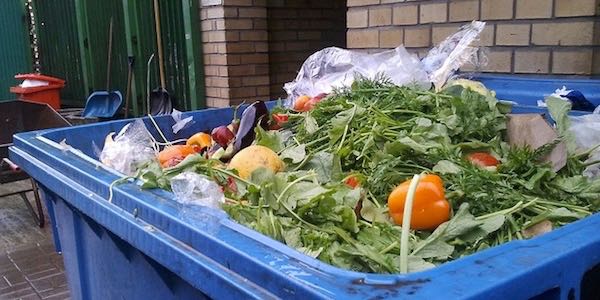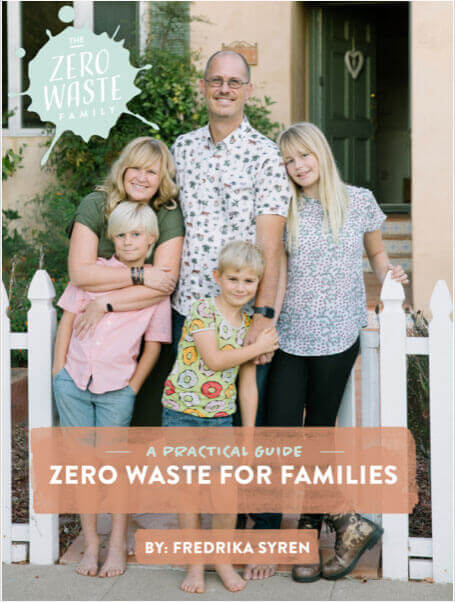By Fredrica Syren:
Did you know that almost 800 million people around the globe do not get enough food to eat, and that poor nutrition kills 3.5 million children each year? It’s shocking and even more frustrating if you add that about 40 percent of all food grown for humans around the world is wasted — as in thrown away or discarded. It’s so tragic and unacceptable. This is why food waste is a very serious problem that we need to fight.
It’s no surprise that most food waste happens in developed countries. For example, Europe and North America are responsible for approximately 95-115kg of food waste per year, in comparison to 6-11kg 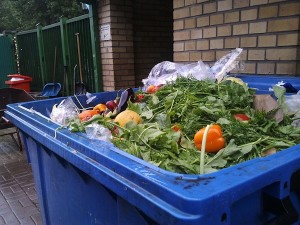 in sub-Saharan Africa and South/Southeast Asia. The sad truth is that all this wasted food could improve global food security. Besides the fact that it could save lots of starving people, food waste also has a huge negative impact on the environment. According to Green Facts, the carbon footprint of food produced and not eaten is estimated at 3.3 tons of CO2-equivalent. To spell it out, when considering the total emissions by country, only the USA and China are responsible for more emissions. Furthermore, the production of this wasted food uses about 1.4 billion hectares of land, which is equal to 28 percent of the world’s agricultural area; and a huge amount of ground water is being used in the same production.
in sub-Saharan Africa and South/Southeast Asia. The sad truth is that all this wasted food could improve global food security. Besides the fact that it could save lots of starving people, food waste also has a huge negative impact on the environment. According to Green Facts, the carbon footprint of food produced and not eaten is estimated at 3.3 tons of CO2-equivalent. To spell it out, when considering the total emissions by country, only the USA and China are responsible for more emissions. Furthermore, the production of this wasted food uses about 1.4 billion hectares of land, which is equal to 28 percent of the world’s agricultural area; and a huge amount of ground water is being used in the same production.
The good news is that food waste is nowadays a topic that is being discussed more and more, and people from all over the world are taking small steps toward changing it. Here is what some are doing.
France—Last year France passed a new law as part of an effort to meet their goal to reduce food waste by 50% by the year 2025. It bans grocery stores from throwing away or damaging unsold food, and mandates that this food, if edible, be donated to charities or as animal feed if not suitable for human consumption.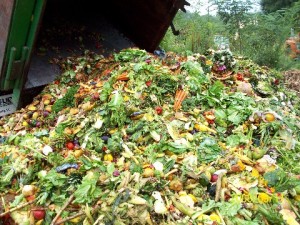
United Kingdom—One of its largest grocery chains, Sainsbury’s Supermarket chain is working toward creating power from leftover foods, and planning to disconnect itself from the national grid. To make this a reality, Sainsbury’s is partnering with UK’s largest waste management company, Biffa. The supermarket will transport its food waste from its stores nationwide to Biffa’s plant in Staffordshire, where it will be converted into biogas. The gas then will be burned to meet the energy needs of the Sainsbury Market located in the town of Cannock.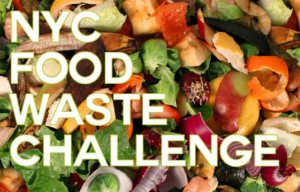
New York—In 2013, New York City’s Mayor Michael Bloomberg announced the first ever “Food Waste Challenge” that will help the city’s PlaNYC goals to reduce the amount of solid organic waste going into landfills by 75% by the year 2030. Over a hundred of the city’s restaurants, including Batali and Bastianich Hospitality Group, Blue Hill, Chipotle, Cleaver Co., Juice Generation, Le Bernardin, Momofuku, Pret-a-Manger, Union Square Hospitality Group and ‘WichCraft have agreed to participate through composting, recycling and other waste prevention strategies.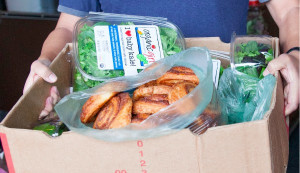
San Francisco—In San Francisco, the organization Food Runners is working to reduce food waste and raise awareness of the problem. They have a group of volunteers who partner with hundreds of Bay Area companies, including Google, Twitter and Airbnb, where leftover food is picked up and delivered to those in need.
Denmark—This small country is doing its part with a new subsidy pool worth more than DKK 5 million (almost $750,000) that will be distributed to projects trying to tackle waste throughout the food chain, from production to consumption.
Germany—Margarete Herrmann, who works in a psychotherapy practice in the leafy Berlin suburb of Zehlendorf, cycles to a nearby organic store, Bio Company, for a twice-weekly pickup appointment. A salesperson greets her at the shop and hands over five boxes full of food. Carrots, cream, yogurt, beansprouts, tofu burgers and bread rolls are among the items inside. Herrmann is one of about 8,000 “food-savers” across Germany, Switzerland and Austria who combat food waste through the growing online platform Foodsharing. Whatever food she does not need, she will offer for free online on this site.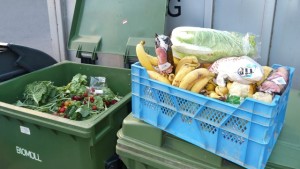
There also are many smaller groups taking on the fight against food waste with all kinds of creativity. Lots of them involve the redistribution of surplus food to local charities. Some simply cook and serve food that would otherwise go to waste. Here in Sweden where I live, the consumer association hosted a lunch in a hip neighborhood cooked completely with “wasted” food. Of course, dumpster diving is also a way individuals do their part in diverting food waste from the landfill while personally benefitting.
To read more about who is fighting food waste, check out these sites:
http://www.alternet.org/food/58-organizations-fighting-food-waste-around-world
http://www.treehugger.com/slideshows/green-food/7-groups-fighting-food-waste-around-world/
http://inhabitat.com/12-organizations-fighting-food-waste-around-the-globe/


